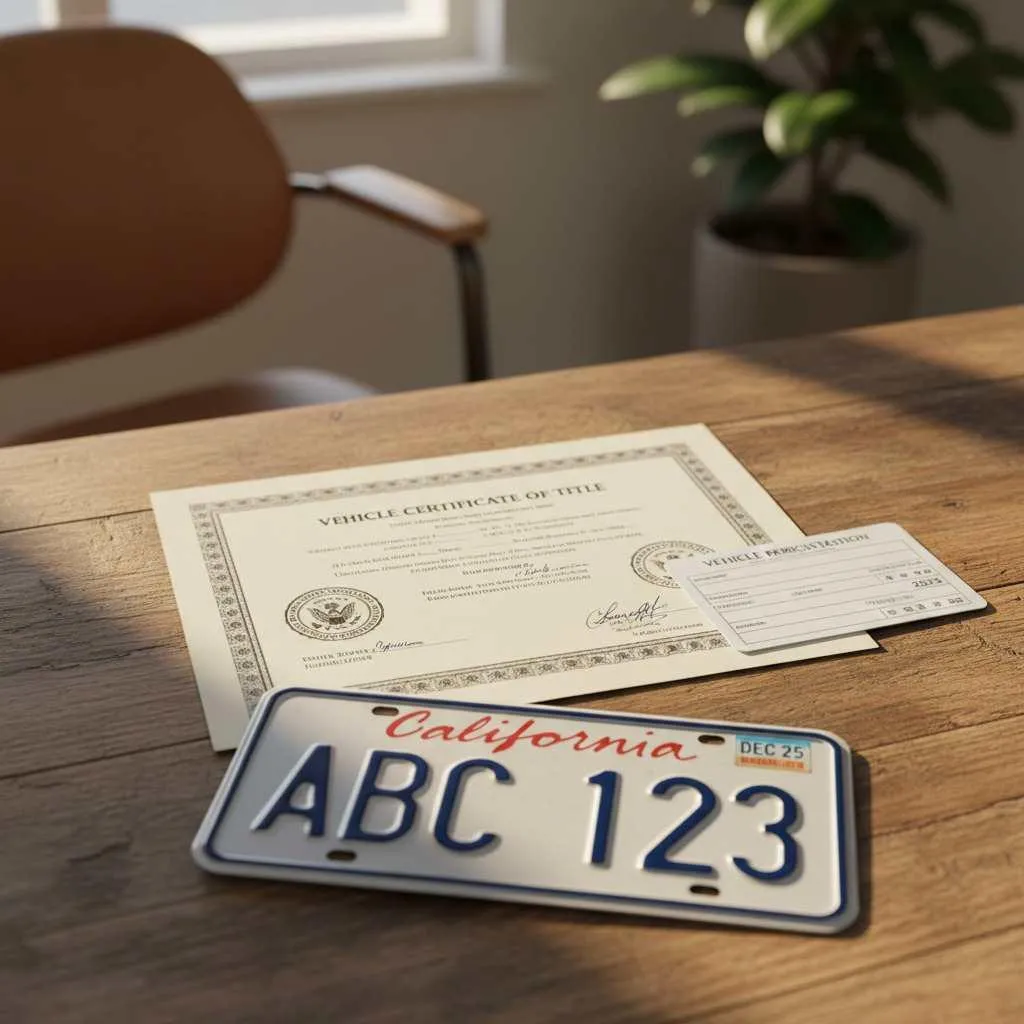
Difference Between Titling, Tagging and Registering
Buying a new RV, ATV, or classic car brings excitement, but the paperwork can feel like a roadblock. Many vehicle owners, especially those with specialty vehicles like military Humvees or Japanese Kei trucks, struggle to understand the differences between titling, tagging, and registering.
These processes, while related, serve distinct roles in making your vehicle legal for public roads. Confusion over terms like vehicle title vs registration or what is vehicle tagging often leads to costly delays, high taxes, or DMV headaches. This guide explains each process in detail and helps you avoid car title troubles before they even start.
Key Takeaways
Clarify the roles of titling, tagging, and registering for any vehicle.
Navigate state-specific requirements, like Colorado’s strict title rules.
Simplify registration with Montana’s streamlined, flat fee process.
Address lien issues and lost paperwork for RVs and ATVs.
Ensure compliance with the right documents for legal driving.
What is a Vehicle Title and Why is it Important?
A vehicle title is your legal proof of ownership. It is a single-page document issued by your state’s DMV. It acts like a "birth certificate" for your car, RV, or motorcycle. Without a title, you cannot sell your vehicle or transfer a motorcycle title to a new owner.
How to Keep Your Title Safe?
Store it safely: Never keep your title inside your car. If a thief steals the car, they can use the title to claim they own it.
Check for errors: Fake or invalid titles might have mismatched fonts or a VIN mismatch.
Handle liens: If you have a loan, the bank (lienholder) usually keeps the title until you pay it off.
In states like Colorado, getting a title without paperwork is very hard. However, Montana makes it easy to get a title for a barn find car using just a bill of sale.
How Does Vehicle Registration Work?

Vehicle registration connects your vehicle to you and the state. It proves that your car or RV meets all state standards and is legal to drive on public roads. To register, you usually need a title, insurance, and money for fees.
Some states, like California, charge huge sales taxes (up to $15,000) on new RVs. That is why many people look for a step-by-step guide to registering an RV in a streamlined process like Montana’s.
Why Do People Register Vehicles in Montana?
Montana is famous for its Flat Fee RV registration. By using a Montana LLC, you get a simplified registration process, and if your vehicle is more than 11 years old, you can receive permanent registration, eliminating the need for yearly renewals.
What are License Plates and Tags?
License plates, or "tags," are the visible proof that your vehicle is registered. They display a unique number linked to your VIN and owner details. Some states require plates on both the front and back, while others only need one.
"Tagging a car" means putting these plates on so police can see the vehicle is road-legal. If you just bought a vehicle, you might use temporary paper tags for 40 days while waiting for your metal plates. To stay organized, it helps to follow a motorcycle registration checklist so you don't miss any steps.
How Can You Overcome Common Documentation Challenges?
Dealing with the DMV can be a nightmare, especially for ATV registration without a title or specialized military vehicles.
Common Solutions:
Lost Titles: If you live in a strict state like Colorado, you might need a bonded title. Montana is often a better choice because they accept a bill of sale more easily.
Hidden Liens: Always check for hidden liens on a car title before buying a used vehicle.
High Taxes: Setting up a Montana LLC provides excellent classic car tax protection and saves you thousands in state sales tax.
Why Pick Our Vehicle Registration Service? Your Success, Our Guarantee
Understanding vehicle titling, tagging, and registration is complex, but completing them shouldn’t be. Street Legal Hookup makes every step fast, affordable, and 100% online. Whether you’re titling a classic car, registering an ATV, or tagging your RV for the first time, our Montana LLC process saves you time, money, and frustration.
All-in-One Solution: Title, tag, and register your vehicle entirely online with expert guidance every step of the way.
Nationwide Legal Coverage: We handle vehicles across all 50 states, including off-road, imported, and military models.
Flat Fee Registration: Simplify your vehicle registration with our legal Montana LLC setup, providing a streamlined, hassle-free process.
Permanent Plates Available: Eligible vehicles receive lifetime registration with no renewals or inspections required.
Fast and Secure Processing: Temporary tags arrive within 1 business day and permanent plates in as little as 3 days.
Expert Help for Complex Cases: We specialize in lost titles, lien issues, and out-of-state transfers that most services won’t touch.
Fully Digital Platform: Upload, track, and manage all documents securely through your personalized customer dashboard.
Trusted by Thousands: Our clients include RV owners, ATV riders, and collectors who rely on us for smooth, legal registration every year.
Frequently Asked Questions
What is the difference between registration and tags?
Registration is the official state record showing your vehicle is legal for road use. Tags (license plates) are the physical signs you put on your car to show that registration. According to Wikipedia, registration ensures the vehicle meets safety and tax requirements.
What does title mean when registering?
A title is a document that proves you are the legal owner. You must provide a title to the DMV before they allow you to register the vehicle for the road. If you have lost yours, you may need to recover a motorcycle title or use a bonded title process as outlined by the NHTSA (.gov).
How long are registration tags good for?
Most registration tags are good for one or two years. However, in Montana, vehicles over 11 years old can get permanent tags that never expire. This means you only pay once for the life of the vehicle.
Do car titles expire?
No, a title does not expire. It remains valid as long as you own the vehicle. You only need a new one if you sell the car or if you need to fix car title errors like a name change or correction.
Conclusion
To drive legally, you must understand how titling (ownership), registration (permission), and tagging (proof) work together. While these steps can be confusing, choosing the right state like Montana can save you money and time.



